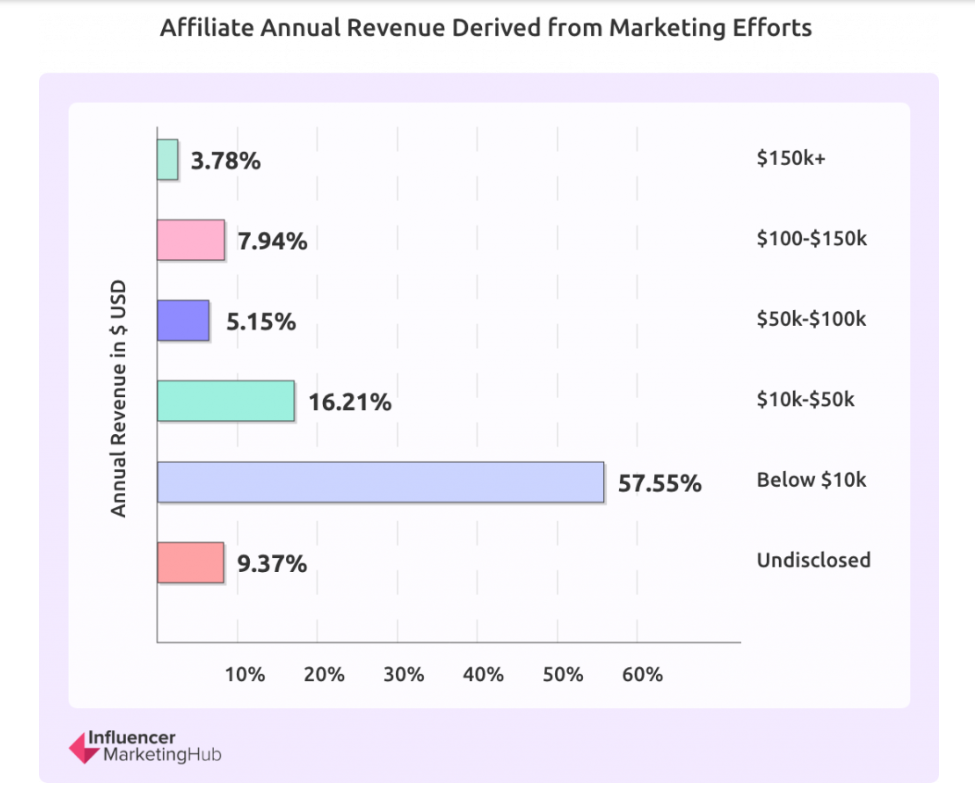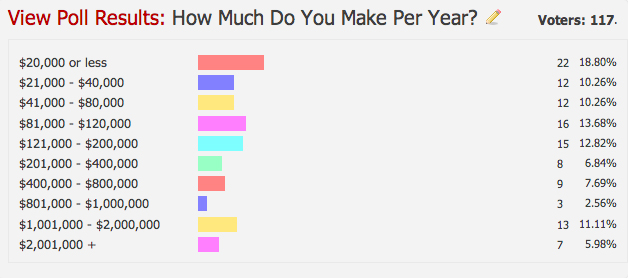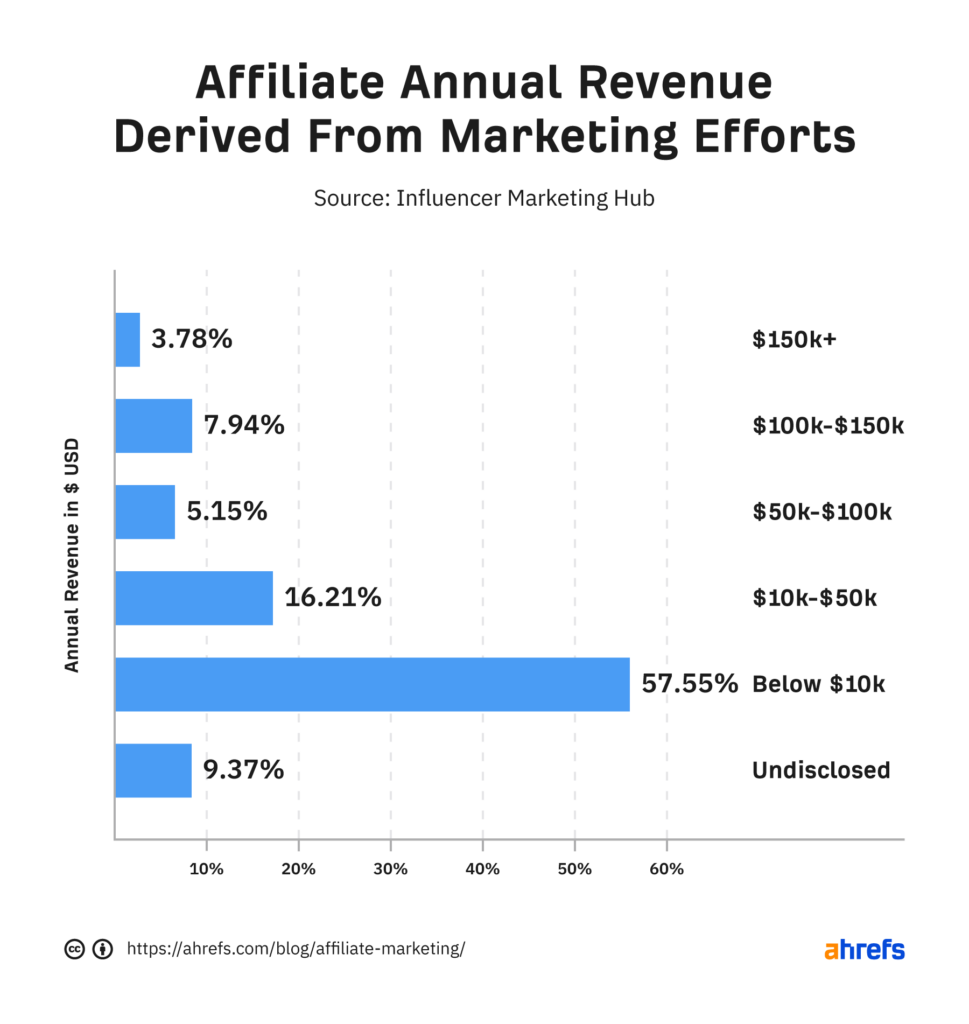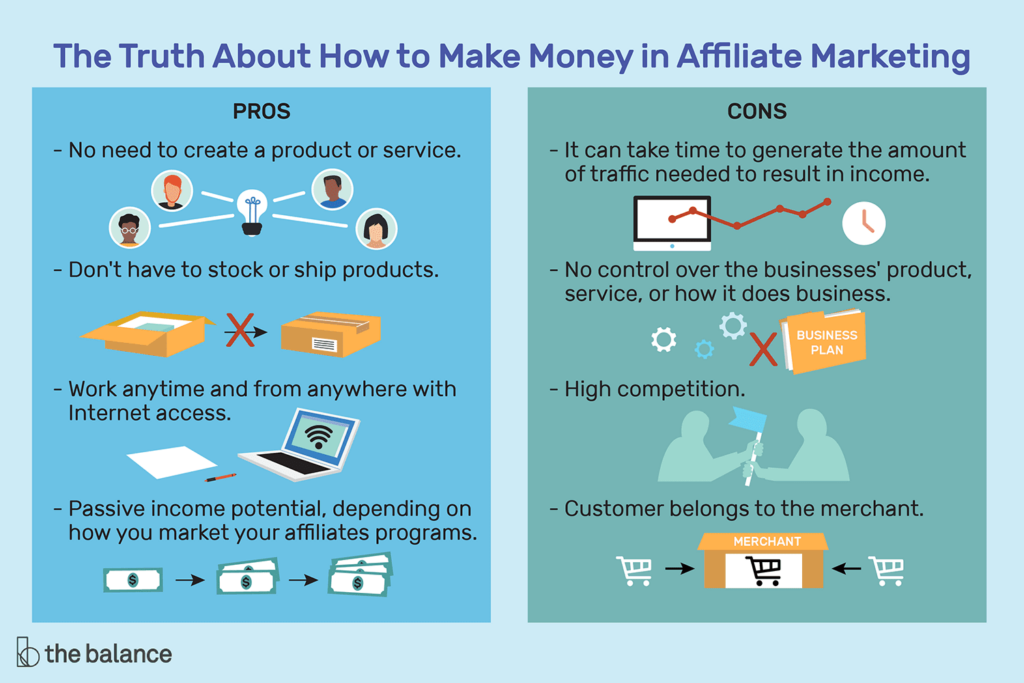Have you ever wondered how many followers you actually need to start making money from affiliate marketing? It’s a question that many aspiring affiliate marketers ask themselves, and it’s an important one. After all, your success in this field often depends on your ability to attract and engage a loyal audience. In this article, we’ll dive into the topic of how many followers you truly need to start generating income from affiliate marketing. So, if you’re ready to learn more, keep reading!
How Many Followers Do You Need To Make Money From Affiliate Marketing?
When it comes to affiliate marketing, the number of followers you need to start making money can vary depending on several factors. First and foremost, it’s important to remember that quality trumps quantity. Having a smaller, engaged audience who truly values your recommendations and trusts your expertise can actually be more beneficial than having a large following that doesn’t engage with your content. So, while there isn’t a specific number of followers you need to reach before you start earning money, having a dedicated and supportive audience is crucial.
Another factor to consider is the niche you’re in and the products or services you’re promoting. Some niches may require a larger audience to start generating income, while others may be more profitable with a smaller, niche-specific following. Additionally, the engagement rate of your audience plays a significant role. If you have a high percentage of active and loyal followers who regularly interact with your content, your chances of making money through affiliate marketing increase.
In conclusion, there isn’t a set number of followers you need to make money from affiliate marketing. Instead, focus on building a loyal and engaged audience who values your recommendations. The size of your following, the niche you’re in, and the engagement rate of your audience all play a role in your success. So, keep growing your audience, provide valuable content, and remember that building a solid foundation will ultimately lead to monetizing your affiliate marketing efforts.
The Basics of Affiliate Marketing
Affiliate marketing has gained significant popularity in recent years as a means of monetizing online platforms and generating passive income. If you’re looking to make money through affiliate marketing, it’s important to understand the fundamentals of this marketing strategy and the steps involved in achieving success.
Understanding Affiliate Marketing
Affiliate marketing is a performance-based marketing strategy where affiliates earn a commission for promoting products or services on their platforms. Affiliates act as middlemen, connecting consumers with the products or services they are looking for. By leveraging their online presence and influence, affiliates drive traffic and generate sales for merchants.
How It Works
The process of affiliate marketing begins with the affiliate joining an affiliate program. After signing up, the affiliate receives a unique affiliate link or promo code. This link/code tracks the traffic and conversions generated by the affiliate. When a user clicks on the affiliate link and makes a purchase, the affiliate earns a commission.
Affiliate marketing operates on a pay-per-performance model, meaning affiliates only receive payment when their referral completes a desired action, such as making a purchase or signing up for a service. This structure incentivizes affiliates to actively promote the products or services they believe in, as their earnings are directly tied to their performance.
Benefits of Affiliate Marketing
Now that we’ve covered the basics, let’s delve into the benefits of affiliate marketing that make it an attractive option for making money online.
Passive Income
One of the greatest advantages of affiliate marketing is the potential to generate passive income. Once you’ve set up your affiliate marketing strategy and established your online presence, you can earn money even while you sleep. As long as your affiliate links continue to drive conversions, you’ll continue to earn a commission.
Low Start-up Costs
Compared to starting a physical business or developing your own products, affiliate marketing has minimal start-up costs. You don’t need to invest in inventory, product development, or shipping logistics. Instead, you can focus on promoting existing products or services and earn a commission for every successful referral.
Flexibility and Freedom
Affiliate marketing allows you to work on your own terms. You have the freedom to choose the products or services you want to promote, the platforms you want to utilize, and the strategies you want to implement. This flexibility enables you to align your promotions with your interests and values, ensuring authentic and genuine recommendations to your audience.
Determining Your Target Audience
Before diving into affiliate marketing, it’s crucial to identify and understand your target audience. Building a strong connection with your audience sets the foundation for success in affiliate marketing.
Identifying Your Niche
To determine your target audience, you must first identify your niche. A niche is a specific segment of the market that you specialize in and cater to. By focusing on a niche, you can position yourself as an authority figure and better understand the needs and preferences of your audience.
When selecting a niche, consider your passions, interests, and expertise. By choosing a niche that aligns with your skills and knowledge, you’ll be able to provide valuable content and recommendations to your audience.
Researching Your Target Audience
Once you’ve identified your niche, it’s time to conduct thorough research on your target audience. Understanding their demographics, interests, pain points, and online behavior is essential for crafting effective marketing strategies.
Conduct market research to gather data on your target audience. Utilize tools like Google Analytics, social media analytics, and surveys to gain insights into their age, gender, location, preferences, and purchasing behavior. The more data you gather, the better you can tailor your content and promotions to resonate with your audience.
Creating Buyer Personas
Buyer personas are fictional representations of your ideal customers. They help you understand your audience on a deeper level and allow you to create content that speaks directly to their needs and desires.
To create buyer personas, analyze the data you’ve collected from your research. Identify common characteristics and traits among your target audience and group them into distinct personas. Consider factors such as age, occupation, motivations, challenges, and goals. Use this information to develop targeted marketing campaigns that resonate with each persona.

Building Your Online Presence
Once you have a clear understanding of your target audience, it’s time to build your online presence. Your online platform will serve as the foundation for your affiliate marketing efforts.
Choosing the Right Platform
There are various platforms you can leverage for your affiliate marketing business, including blogs, social media, YouTube, podcasts, and email marketing. Choose a platform that aligns with your skills, interests, and the preferences of your target audience.
Consider the type of content you enjoy creating and consuming. If you love writing, a blog might be the ideal platform for you. If you’re comfortable on camera and have a knack for storytelling, YouTube could be the perfect fit. The key is to choose a platform where you can consistently create high-quality content that engages and resonates with your audience.
Setting Up a Website/Blog
If you opt for a blog or website as your primary platform, the first step is to choose a domain name and hosting provider. Select a domain name that is relevant to your niche and easy to remember. Look for hosting providers that offer reliable servers, good customer support, and affordable pricing.
Once you’ve set up your website, customize it with a visually appealing and user-friendly design. Ensure that your website is easy to navigate, loads quickly, and is compatible with different devices. Invest in search engine optimization (SEO) to improve your website’s visibility and drive organic traffic.
Creating High-Quality Content
Content is the cornerstone of affiliate marketing. Creating valuable, informative, and engaging content is crucial for attracting and retaining your audience.
Prioritize quality over quantity when it comes to content creation. Research the topics and keywords that are relevant to your niche and integrate them naturally into your content. Focus on providing solutions to your audience’s problems and addressing their pain points.
Explore different content formats, such as blog posts, videos, podcasts, and graphics, to cater to different preferences. Consistency is key, so establish a content schedule that works for you and stick to it.
Creating Value for Your Audience
To succeed in affiliate marketing, you must create value for your audience. Simply bombarding them with advertisements and promotions won’t lead to long-term success. Instead, focus on fostering trust and providing genuine recommendations.
Choosing Relevant Affiliate Products
When selecting affiliate products or services to promote, it’s crucial to choose ones that align with your niche and audience’s interests. Promoting products that are irrelevant or low-quality can damage your credibility and trust with your audience.
Research the products you’re considering promoting. Test them out personally or read reviews to ensure they meet your audience’s needs and provide value. Look for affiliate programs with a good reputation, fair commission rates, and reliable tracking systems.
Providing Genuine Recommendations
To establish trust and credibility, it’s essential to provide genuine recommendations to your audience. Only promote products or services that you believe in and have personally vetted. Share your personal experiences and insights to showcase why you endorse the product.
Avoid using overly salesy language or making exaggerated claims. Instead, focus on highlighting the benefits and features of the product in a relatable and honest manner. The more authentic and transparent you are, the more likely your audience will trust and act on your recommendations.
Offering Exclusive Deals and Discounts
One effective way to provide value and incentivize your audience to purchase through your affiliate links is by offering exclusive deals and discounts. Partner with merchants to negotiate special discounts or promotions for your audience.
By providing exclusive offers, you differentiate yourself from other affiliates and give your audience added incentive to purchase through your links. Share these exclusive deals through your content and social media platforms, and highlight the savings and benefits they bring.

Growing Your Audience
Once you’ve established your online presence and started generating content, it’s important to focus on growing your audience. The larger your audience, the more potential customers you can reach and the more revenue you can generate.
Utilizing Social Media Platforms
Social media platforms are powerful tools for growing your audience and driving traffic to your affiliate promotions. Identify the platforms that your target audience frequents and develop a strategy to engage and connect with them.
Create compelling and shareable content that aligns with your niche and helps solve your audience’s problems. Utilize relevant hashtags and engage in conversations within your niche to expand your reach. Consistency is key, so create a social media posting schedule and stick to it.
Engaging with Your Audience
Building a loyal and engaged audience requires interacting and engaging with your followers. Respond to comments, answer questions, and seek feedback from your audience. Show genuine interest in their concerns and provide helpful solutions.
Encourage your audience to share their experiences and opinions. Run polls, ask open-ended questions, and conduct surveys to gather insights and learn more about their needs. This interaction helps create a sense of community and strengthens the bond between you and your audience.
Running Contests and Giveaways
Running contests and giveaways is an effective way to not only engage with your existing audience but also attract new followers. Encourage your audience to participate in contests where they can win products or services related to your niche.
In order to enter the contest, require participants to perform certain actions, such as following your social media accounts, subscribing to your newsletter, or sharing your content. This helps expand your reach and attract new followers who are interested in your niche.
Understanding Follower Quality vs Quantity
When it comes to the number of followers you need to make money from affiliate marketing, it’s important to understand the concept of follower quality versus quantity. Although having a large following may seem appealing, the quality of your followers is ultimately what determines your success.
Why Quality Matters More
Having a large number of followers doesn’t guarantee success in affiliate marketing. It’s important to have followers who are genuinely interested in your content and trust your recommendations. Quality followers are more likely to engage with your promotions and make purchases through your affiliate links.
Quality followers also have a higher potential for word-of-mouth marketing. If they genuinely find value in your recommendations, they’re more likely to share them with their own network, further expanding your reach and potential customer base.
Engagement Metrics and Conversion Rates
To determine the quality of your followers, you must analyze their engagement metrics and conversion rates. Engagement metrics include likes, comments, shares, and click-through rates. Higher engagement rates indicate that your followers are actively interacting with your content and are more likely to take action on your promotions.
Conversion rates, on the other hand, measure the percentage of visitors who make a purchase through your affiliate links. Ideally, you want to aim for higher conversion rates, as this indicates that your followers are not only engaging with your content but also following through with purchases.
Finding Your Ideal Follower Size
The ideal follower size varies depending on your specific niche and target audience. Some niches may require a smaller, highly targeted following, while others may benefit from a larger, more generalized audience.
Focus on building a quality audience rather than obsessing over the number of followers. It’s better to have a smaller, engaged audience that consistently purchases through your affiliate links than a large, disinterested following. Quality followers will ultimately lead to higher conversion rates and greater success in affiliate marketing.

Monetizing Your Affiliate Marketing
Once you’ve built your online presence and grown your audience, it’s time to monetize your affiliate marketing efforts. Here are some key steps to generate consistent revenue from your affiliate promotions.
Choosing Affiliate Programs/Networks
Carefully select the affiliate programs or networks that align with your niche and audience’s interests. Look for programs that offer fair commission rates, reliable tracking systems, and a wide range of products or services to promote.
Consider the reputation and credibility of the affiliate programs/networks you join. Read reviews, research their payment policies, and reach out to fellow affiliates for recommendations. The programs you choose will directly impact your earning potential, so choose wisely.
Generating Consistent Traffic
Consistent traffic is crucial for successful affiliate marketing. Focus on driving traffic to your website or platform through various means, such as SEO, social media marketing, content marketing, and email marketing.
Create valuable and shareable content that appeals to your target audience. Optimize your content for search engines by incorporating relevant keywords and meta tags. Leverage the power of social media to promote your content and increase visibility.
Tracking Conversions and Sales
Effective tracking and analyzing of conversions and sales are essential for optimizing your affiliate marketing strategy. Use tracking tools provided by your affiliate program/network to monitor the performance of your affiliate links.
Analyze conversion rates, click-through rates, and earnings per click to gain insights into what is working and what needs improvement. Test different promotional strategies, landing pages, and call-to-actions to optimize your conversions and maximize your revenue.
Affiliate Marketing Commission Rates
Affiliate marketing commission rates vary depending on the merchant, product, and affiliate program. Understanding commission structures and negotiating higher rates can significantly impact your earning potential.
Understanding Commission Structures
Commission structures can take different forms, such as percentage-based commissions, fixed commissions, or tiered commissions. Percentage-based commissions are calculated based on the total purchase amount, while fixed commissions offer a fixed amount for every successful referral. Tiered commissions allow you to earn higher rates as you generate more sales.
Research the commission structures of the affiliate programs you join and understand how they align with your revenue goals. Consider the average order value (AOV) of the products or services you promote, as higher AOVs generally lead to higher commission rates.
Negotiating Higher Rates
Once you’ve established a strong online presence and proven your value as an affiliate, don’t be afraid to negotiate higher commission rates with your affiliate partners. If you consistently drive significant sales and provide value to their business, they may be open to increasing your commission rates.
Approach the negotiation process professionally and showcase your results and audience engagement. Provide data and case studies that demonstrate the impact you’ve had on their sales and revenue. Be prepared to make a strong business case for why you deserve higher commission rates.
Finding High-Paying Affiliate Programs
While it’s important to negotiate higher rates with your existing affiliate partners, you can also seek out high-paying affiliate programs in your niche. Research affiliate programs that offer competitive commission rates and have a reputation for fair treatment of their affiliates.
Look for programs that provide additional incentives, such as bonuses for exceeding sales targets or tiered reward structures. Consider joining affiliate networks that offer a variety of high-paying programs, as this can save you time and effort in finding individual programs.

The Role of Followers in Affiliate Marketing
Your followers play a crucial role in the success of your affiliate marketing efforts. Building trust and credibility is essential for earning their loyalty and driving conversions.
Building Trust and Credibility
Trust is the foundation of any successful relationship, including the relationship between affiliates and their followers. To build trust with your audience, deliver valuable content consistently, and provide genuine recommendations.
Be transparent about your affiliate marketing activities and disclose your relationships with the merchants you promote. Establish yourself as an authority figure in your niche by sharing your knowledge and expertise. Your audience should feel confident that you have their best interests at heart and that you only promote products or services that you truly believe in.
Leveraging Influencer Marketing
Influencer marketing is a powerful strategy within affiliate marketing. By partnering with influencers within your niche who have a large and engaged following, you can significantly expand your reach and credibility.
Identify influencers who align with your niche and share similar values. Reach out to them to explore potential collaboration opportunities. This could include guest blogging on their platforms, co-creating content, or hosting joint promotions. Leveraging the trust and influence of established influencers can help you gain credibility and attract new followers.
Creating a Strong Brand Image
Building a strong brand image is integral to your success as an affiliate marketer. Your brand image encapsulates your values, personality, and the overall impression you leave on your audience.
Define your unique selling proposition (USP) and communicate it consistently across all your platforms. Develop a distinctive tone of voice, visual identity, and messaging that resonates with your target audience. Be consistent in your branding to create a recognizable and trustworthy brand image.
Calculating Potential Earnings
Evaluating the potential earnings from your affiliate marketing efforts involves analyzing various factors, such as product demand, conversion rates, and affiliate commission rates.
Evaluating Product Demand
The demand for the products or services you promote will greatly impact your earning potential. Research market trends, conduct competitor analysis, and identify products or services that are in high demand within your niche.
Consider factors such as product reviews, customer feedback, and social media buzz to gauge the popularity of a product. The more demand there is for a product, the higher the likelihood of conversions and higher earnings.
Estimating Conversion Rates
Conversion rates measure the percentage of visitors who make a purchase through your affiliate links. Estimating conversion rates involves analyzing historical data and industry benchmarks, as well as considering the quality of your audience and the effectiveness of your promotions.
Track the conversion rates of different promotions and analyze the factors that influence them. Test different strategies, landing pages, and call-to-actions to optimize your conversion rates. As you gain more experience and data, you’ll be able to make more accurate estimations of your conversion rates and potential earnings.
Analyzing Affiliate Commission Rates
The commission rates of your affiliate programs directly impact your earnings. Analyze the commission rates offered by your affiliate partners and calculate the potential earnings for each successful referral.
Consider the average order value (AOV) of the products or services you promote, as higher AOVs can significantly increase your earnings. Factor in the conversion rates you’ve estimated to calculate your overall potential earnings.

Factors Affecting Affiliate Marketing Success
Achieving success in affiliate marketing is a long-term process that requires consistency, patience, and adaptability. Several factors can impact your success in this field.
Consistency and Patience
Consistency is key in affiliate marketing. Building an audience, establishing trust, and driving conversions all require consistent effort over time. Don’t expect overnight success, as affiliate marketing is a marathon, not a sprint.
Be patient and focus on delivering valuable content consistently. Keep refining your strategies, experimenting with new tactics, and learning from your successes and failures. Results may not be immediate, but with perseverance, you can achieve long-term success.
Adapting to Market Trends
The digital landscape is constantly evolving, and as an affiliate marketer, it’s essential to adapt to market trends. Stay up to date with the latest industry developments, consumer preferences, and marketing strategies.
Monitor emerging technologies, social media platforms, and marketing tools to identify opportunities for growth. Experiment with different tactics and strategies to stay ahead of the curve and meet the evolving needs of your audience.
Building Strong Relationships with Affiliate Partners
Building strong relationships with your affiliate partners is crucial for long-term success. Communicate regularly with your partners, provide them with updates on your performance, and seek advice on how to optimize your promotions.
Establishing a good working relationship with your affiliate partners can lead to better commission rates, exclusive deals, and ongoing opportunities for collaboration. Treat your partners as valued allies rather than just sources of income, and invest time and effort into nurturing these relationships.
Tracking and Analyzing Performance
Tracking and analyzing the performance of your affiliate marketing efforts is essential for optimizing your strategies and achieving better results.
Using Analytics Tools
Leverage analytics tools provided by your affiliate program/network, as well as third-party tools, to track and analyze your performance. These tools can provide insights into key metrics such as clicks, conversions, conversion rates, and earnings per click.
Regularly review your analytics to identify trends, patterns, and opportunities for improvement. Look for areas where you can optimize your efforts and make data-driven decisions to maximize your results.
Identifying Successful Strategies
By tracking your performance, you can identify which strategies are yielding the best results. Analyze the performance of different affiliate links, promotional campaigns, and content formats to determine what works best for your audience.
Identify high-converting promotional campaigns and replicate their success. Experiment with different promotional strategies and tactics to diversify your approach and find new opportunities for growth.
Optimizing for Better Results
Optimization is an ongoing process in affiliate marketing. Continuously analyze and optimize your content, promotions, and marketing strategies to improve your results.
Experiment with different landing page designs, call-to-actions, and promotional formats to increase your conversions. Test different content types and formats to see what resonates most with your audience. Use A/B testing to compare different variations of your promotions and determine the most effective approach.
Case Studies: Successful Affiliate Marketers
Learning from real-life examples can provide valuable insights and inspiration for your own affiliate marketing journey. Let’s explore some case studies of successful affiliate marketers and the strategies they implemented.
Case Study 1: Pat Flynn – Smart Passive Income
Pat Flynn is a renowned affiliate marketer who has built a successful brand around his blog and podcast, Smart Passive Income. He focuses on providing value to his audience through educational content, income reports, and genuine product recommendations.
Flynn leverages his expertise in online business and entrepreneurship to create valuable content that resonates with his audience. His transparency, authenticity, and commitment to helping others have earned him a loyal following and numerous accolades.
Lessons learned:
- Providing valuable content and education can serve as a foundation for success in affiliate marketing.
- Transparency and authenticity can build trust with your audience and increase engagement.
- Sharing personal experiences and insights can help establish credibility and create a connection with your audience.
Case Study 2: Michelle Schroeder-Gardner – Making Sense of Cents
Michelle Schroeder-Gardner is a successful affiliate marketer who focuses on personal finance and lifestyle. Through her blog, Making Sense of Cents, and her personal finance course, Schroeder-Gardner offers valuable advice on budgeting, saving, and investing.
Schroeder-Gardner has developed a strong online presence by consistently delivering high-quality content and building trust with her audience. Her course, which she promotes as an affiliate, has become a significant revenue source for her business.
Lessons learned:
- Building trust through consistent high-quality content can lead to lucrative affiliate marketing opportunities.
- Creating and promoting your own products or courses can supplement your affiliate marketing income.
- Focusing on a niche and establishing yourself as an expert can attract a dedicated and engaged audience.
Case Study 3: John Chow – John Chow dot Com
John Chow is a well-known affiliate marketer who has built a successful brand around his blog, John Chow dot Com. He shares his journey from poverty to wealth and provides insights and strategies for making money online.
Chow leverages his expertise in blogging, online marketing, and entrepreneurship to attract a wide audience. He consistently provides valuable content, promotes relevant affiliate products, and shares his affiliate marketing success stories to inspire his followers.
Lessons learned:
- Building a personal brand around your expertise and success story can attract a wide audience.
- Consistently sharing valuable content and success stories can create a sense of authority and credibility.
- Promoting relevant and high-quality affiliate products can generate significant revenue.
Conclusion
In conclusion, the number of followers you need to make money from affiliate marketing depends on various factors, including the quality of your audience, engagement metrics, and conversion rates. Building an engaged and loyal following is more important than simply pursuing a large number of followers.
To succeed in affiliate marketing, focus on understanding your target audience, creating valuable content, and providing genuine recommendations. Building trust and credibility with your audience is crucial for driving conversions and earning consistent revenue.
By consistently tracking and analyzing your performance, optimizing your strategies, and learning from successful affiliate marketers, you can achieve success in the world of affiliate marketing. Remember, affiliate marketing is a long-term process that requires patience, adaptability, and strong relationships with your affiliate partners.
